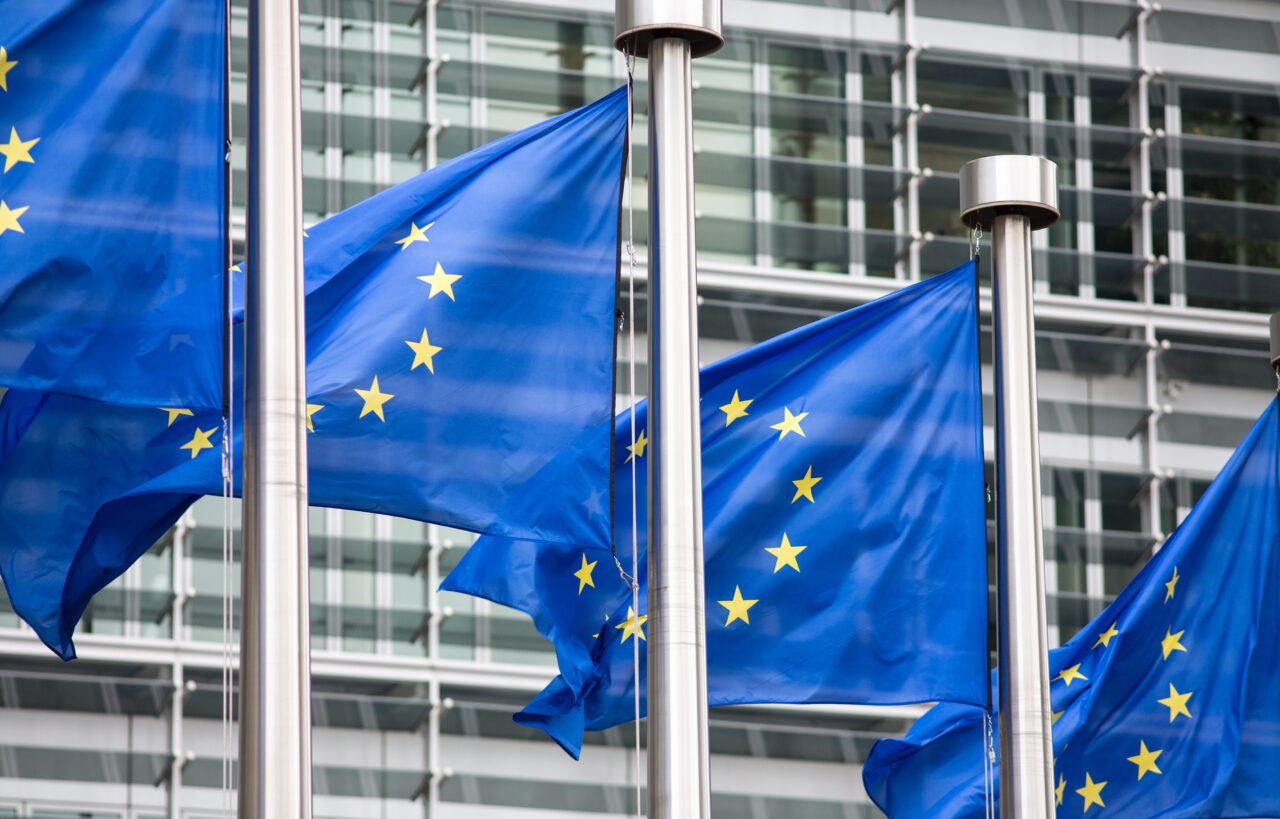policy impact with FIPRA
Presidency in the shadow of war in Ukraine

Czech Presidency of the Council of the European Union
(July 1st-December 31st 22)
Leadership for the difficult times
The 8-month programme of the Council, prepared by the future French, Czech and Swedish Presidencies and the High Representative, Chair of the Foreign Affairs Council adopted in December 2021 is still a valid framework for the Czech Presidency. However, the Russian aggression, which started on 24th February 2022, has created new realities. It put the EU´s strategic agenda into a new light and a new context. This was already reflected during the French Presidency and it is fully reflected by the Czech Presidency. The Czech Republic, during its presidency, will focus on five closely linked priority areas:
- Managing the refugee crisis and Ukraine’s post-war recovery
- Energy security
- Strengthening Europe’s defence capabilities and cyberspace security
- Strategic resilience of the European economy
- Resilience of democratic institutions
The aim of the Czech Presidency (CZ PRES) is to take the European Union (EU) forward as a coherent strategic actor that is able to cooperate with partners and allies from over the world, to act and survive as an independent entity based on shared values.
General Affairs Council
CZ PRES will push for concrete progress in EU enlargement negotiations with the Western Balkan countries. France has long maintained a very reserved attitude towards enlargement policy as a tool for deepening the EU’s influence in the region. When enlargement focuses on opening accession negotiations with Albania and North Macedonia, the French agreed only on the condition of applying a new approach (methodology) for conducting negotiations.
Foreign Affairs Council
The primary objective of the CZ PRES is to strive to maintain a unified EU policy. The CZ PRES will promote cooperation between the EU and the USA in the foreign policy area and on defence and security issues such as energy security, counter-terrorism and international trade, including through the EU-US Trade and Technology Council. At the same time, CZ PRES will emphasise inviting US partners to Foreign Affairs Council (FAC) discussions. The EU and the US should find common ground on how to counter China’s growing ambitions and conduct a dialogue in the Indo-Pacific region. CZ PRES will promote EU-US cooperation to enhance global and regional stability, prosperity, and conflict resolution.
This would be done particularly in relation to Russia, the Eastern Partnership countries, the Western Balkans, and Turkey. CZ PRES will support the organisation of an EU-US summit. CZ PRES will also support the deepening of the EU-Canada strategic partnership and the effective use of the Comprehensive Economic and Trade Agreement (CETA). Trans-Atlantic ties are less of a priority for France than for the CZ. Among others, France is the only Member State that has not supported the EC mandates for negotiating agreements on industrial tariffs and conformity assessment.
In light of the Russian aggression, following the granting of candidate status to Ukraine and Moldova, and the confirmation of the European perspective of Georgia; CZ PRES will support further EU integration as well as the European perspective of the Eastern Partnership countries.
The Czech Republic is a long-term supporter of the Trans-Atlantic relationship. The current Czech government is fully behind this approach which aims at effective collective defence through NATO.
Defence – EU Needs to Do More
The Czech Republic is a long-term supporter of the Trans-Atlantic relationship. The current Czech government is fully behind this approach which aims at effective collective defence through NATO. At the same time, the Czech government fully supports the quick development of capabilities of Member States’ armies and Member States’ defence industries. The CZ PRES will focus on taking forward initiatives stemming from the new EU Strategic Compass, especially from initiatives and decisions adopted in reaction to Russian aggression toward Ukraine.
It is the CZ PRES’ priority to allow the fastest possible removal of identified defence capabilities gaps – building on February Communication from the Commission, March Versailles Declaration of Heads of State or Government, May Joint Communication of EC and HR EU for Foreign Affairs and Security Policy on the Defence Investment Gaps Analysis and Way Forward. The CZ PRES will vigorously focus on adopting European Defence Industry Reinforcement through the Common Procurement Act by the end of 2022, the draft of which was agreed upon and distributed by the European Commission on July 19th. The Czech EU presidency will within this framework focus on quick solutions to buy military equipment with money from EU funds by those Member States which donated military equipment to Ukraine.
ECOFIN
The CZ PRES will advocate for the negotiation of the important Carbon Border Adjustment Mechanism (CBAM) instrument so that it sets a level playing field in relation to third-country entities in terms of carbon leakage whilst remaining compatible with international trade rules. The Czech Republic is reluctant to launch the first phase of CBAM (concerning the collection of information from suppliers) from 2023 as it is a new, untested, and complex mechanism.
The CZ PRES will also be heavily involved in activities and coordination of EU positions on international climate finance, including in the context of the preparation and EU Presidency of the 27th Conference of the Parties to the UN Framework Convention on Climate Change (COP27) to be held in November 2022 in Egypt.
The Czech Republic is against the introduction of a Financial Transaction Tax. The Czech Republic does not support the use of the FTT as an own resource of the EU budget. The Czech Republic is not involved in the ongoing work on enhanced cooperation in the FTT (10 Member States are participating). However, it is possible that the whole project could be finalised during the CZ PRES.
Justice and Home Affairs
An important agenda in the area of civil law for CZ PRES will be the EU accession to the Hague Convention on the Recognition and Enforcement of Foreign Judgments in Civil and Commercial Matters, especially because the Czech Republic cannot accede to the Convention on its own, but the EU as a whole will. CZ PRES is also likely to deal with a new instrument that should complement the Hague Convention on the Protection of Adults at the EU level. According to available information, the issue of private liability for artificial intelligence is likely to be discussed at the EU level in 2022.
A priority topic for CZ PRES in the area of private international law and civil judicial cooperation will be to strengthen the principles of subsidiarity and proportionality in the context of cooperation with third countries in order to enable such an interpretation of the EU’s exclusive competencies that the Member States can independently negotiate and conclude bilateral international conventions in this area.
Agriculture and Fisheries Council
CZ PRES will give priority to the impacts of Russian aggression against Ukraine on food security in the context of the situation on commodity markets. Following the expected EC proposals in the area of labelling of foodstuffs, CZ PRES plans to focus on the labelling of ingredients in alcoholic beverages, harmonisation of the rules for the new labelling of nutritional information on the front of food packaging, revision of the labelling of durability and expiry dates, extension of country of origin labelling and the establishment of nutritional profiles. They also hope to lead the discussion on scientific consultations in this area. CZ PRES will strive to achieve a common approach to the revision of the rules for the geographical indications for agricultural products.
Competitiveness Council
In the second half of 2022, the conclusion of the negotiations on the draft Digital Market Act (DMA), which is intended to regulate the obligations of very large platforms (gatekeepers) in relation to other players in the European digital market, is expected. Another important agenda item already looming will be a regulation based on the White Paper on creating a level playing field in relation to foreign subsidies, a draft of which is expected to be published by the EC in 2021.
The area of technical harmonisation will include legislative proposals in the field of construction products, including the introduction of digital product passports and life cycle assessment of these products, as well as proposals on machinery and motor vehicles. Here, the submission of a proposal for a Euro 7 emission standard, which must properly guarantee the sustainable transition and competitiveness of the automotive industry will be crucial from the point of view of the Czech Republic. The Czech Republic rejects the ban on the sale of cars with internal combustion engines and equally rejects the indirect ban through the overly strict Euro 7 standard.
The EU is in the process of setting up the EU Space Programme which establishes a new Space Programme Agency (EUSPA). The main legislative proposal discussed during the mandate of CZ PRES will be a draft regulation on secure satellite communications, the aim of which is to create a system of hundreds of telecommunications satellites, particularly in low orbits. The proposal should be submitted to the EC in the second quarter of 2022. The Czech Republic is a bit sceptical of this initiative and reticent about the plan.
With regard to the new industrial strategy for Europe, the Czech Republic stresses that this should be achieved mainly by expanding trade partnerships with third countries. The Czech Republic agrees with the need to strengthen European production capacities in certain strategic sectors (e.g., semiconductors, batteries), but tools such as IPCEI should be used selectively in areas where the market alone cannot bring the necessary innovations.
With regard to the new industrial strategy for Europe, the Czech Republic stresses that this should be achieved mainly by expanding trade partnerships with third countries. The Czech Republic agrees with the need to strengthen European production capacities in certain strategic sectors (e.g., semiconductors, batteries), but tools such as IPCEI should be used selectively in areas where the market alone cannot bring the necessary innovations.
With regard to the proposal for a regulation on addressing distortions caused by foreign subsidies on the internal market, the Czech Republic perceives risks arising from the uncontrolled operation of entities supported by third countries on the EU internal market. In relation to the proposed control instruments, they consider it necessary to ensure that the establishment of new obligations is not counterproductive and ultimately harmful. The Czech Republic considers that of the proposed modules, Module 1 with shared competence between the Commission and the Member States is the only potentially applicable one. Control mechanisms should be set up in such a way as to avoid a disproportionate increase in administrative burden.
Transport, Telecommunications and Energy Council
In transport, there will be three main legislations: Revision of the Regulation on the Union guidelines for the development of the trans-European transport network (TEN-T); Revision of the Rail Freight Corridors Regulation; and a Proposal for a Regulation on the deployment of infrastructure for alternative fuels.
In alternative fuels, the Czech Republic will promote a technology-neutral approach to the introduction of clean mobility.
During CZ PRES there will also be discussion on a regulation on sustainable fuels in maritime transport, which is to start introducing low-carbon, alternative fuels on ships. The French Presidency had stressed technological neutrality in the introduction of new ship propulsion.
The role of CZ PRES will be to coordinate a common EU position for the General Assembly of the International Civil Aviation Organisation in autumn 2022.
According to the EC, data is at the heart of Europe’s quest for technological sovereignty. To this end, the EU plans to create both the necessary European infrastructure for data (in particular its own cloud services) and legislation. CZ PRES is likely to be affected by the proposed Data Act, which should encourage data sharing between companies and public administrations. The Data Act will build on the currently discussed proposal for a Data Governance Regulation (DGA), which aims to address the biggest problems related to unfair practices in the data sharing market and the lack of competitiveness in the digital sector. In this area, the Czech Republic has long supported the free cross-border movement of data between the EU and third countries and has defined itself against digital protectionism.
A framework proposal for a regulation on artificial intelligence, in which the EC would focus, among other things, on a clearer distinction between high- and low-risk applications and propose stricter regulation for the riskier applications. In this area, the Czech Republic believes that excessive regulation should be avoided, whilst the tools of self-regulation and soft-law approach should be used as much as possible. The Czech Republic will support the development of information exchange and cooperation with third countries such as the USA, Japan, Israel, and others.
CZ PRES will focus on negotiating a revision of the current cybersecurity regulation (NIS). The Czech Republic will be particularly forthright in advocating a risk-based approach, the preservation of the horizontal approach of standards, voluntary cooperation between the Member States and the preservation of their competencies, as well as the importance of supply chain security.
CZ PRES will negotiate the revision of the Directive on network cost reduction (BB cost reduction) and the revision of the decision on creating the multiannual Radio Spectrum Policy Programme (RSPP). At the same time, it cannot be ruled out that the finalisation of the negotiations on the ePrivacy proposal will also be negotiated. CZ PRES will also address the issue of the introduction of the European Digital Identity scheme as part of the revision of the eIDAS Regulation.
The energy sector is one of the areas most affected by the Russian aggression in Ukraine. In the face of Russia’s unilateral moves to restrict gas supplies, the European Union is committed to strengthening its energy security and ending its dependence on Russian fossil fuel imports by the end of the decade. To this end, the Commission has issued the REPowerEU Action Plan proposing concrete steps to achieve this objective.
Energy will be an important area as it will be negotiated as part of the “Fit for 55” package. The Czech Republic is critical of the Energy Efficiency Directive. The Czech Republic considers the proposal to meet some targets and commitments at the national level to be neither realistic nor cost-effective. The Czech Senate has issued a reasoned opinion on the Directive to the European Commission under the Lisbon Treaty, the so-called Yellow Card. With regard to the Renewable Energy Directive, the Czech Republic disagrees with the 50% share of green hydrogen in industrial final consumption and non-energy consumption and calls on the Commission to rationalise this point.
According to the Czech government, increasing the renewables shares for individual Member States by 1.6 per cent per year is beyond the realistic possibilities of the Czech Republic. Regarding the regulation laying down guidelines for trans-European energy networks, the development of the hydrogen market is a key topic for the Czech Republic, but it also supports hydrogen production from low-emission sources such as nuclear power. Currently, discussions in the gas sector mainly regarding the inclusion of natural gas projects and the adaptation of the gas grid to mixtures of natural gas with low-emission gases, including hydrogen.
Discussions on the role of hydrogen in EU energy policy will be of great importance in CZ PRES 2022. In the implementation of the EU Hydrogen Strategy, the Czech Republic has the ambition to take full advantage of the hydrogen chain; due to the lack of RES, the production of clean hydrogen from nuclear energy is in play; in the area of supplying components for hydrogen equipment and infrastructure, the Czech Republic has a high level of engineering and in the area of hydrogen use, it is counted on mainly in freight and mass passenger transport and also in the chemical industry.
The EC will also prepare a completely new legislative proposal for methane emissions in the energy sector in the coming period.
Employment, Social Policy, Health and Consumer Affairs Council
Health policy
The area of rare diseases has long been a priority topic for the Czech Republic, which the MoH has already addressed during CZ PRES 2009.
Other priority agendas of the Czech Republic in the area of health include cancer, which is one of the major priorities of the EC, which last year published the strategic document European Cancer Action Plan.
Environmental Council
The Council for Environment will negotiate the “Fit for 55” package. This will include the revision of the EU ETS Directive, the modification of the Effort Sharing Regulation and the revision of the LULUCF Regulation.
The issue of reducing emission standards for passenger cars will also be a high priority for CZ PRES. In light of the Fit for 55 packages, the Czech Republic generally does not agree with a radical increase in ambition in this area. At the same time, it believes that the reduction of emissions in transport should be addressed in a technology-neutral way and that only electric mobility should not be preferred.
As concerns revision of the EU Emission Trading System, including revision of the EU ETS Directive concerning Market Stability Reserve, maritime, aviation and inclusion of transport and building, the Czech Republic is concerned about the high targets and the lack of impact studies on the Member States.
The EC plans to publish a revision of the Packaging Directive in early 2022. This will include an obligation to have all packaging recyclable in 2030.
The EC plans to publish a revision of the Industrial Emissions Directive in early 2022. The Czech Republic is resistant to tightening or expanding regulated activities.
Written by: Daniel Koštoval


